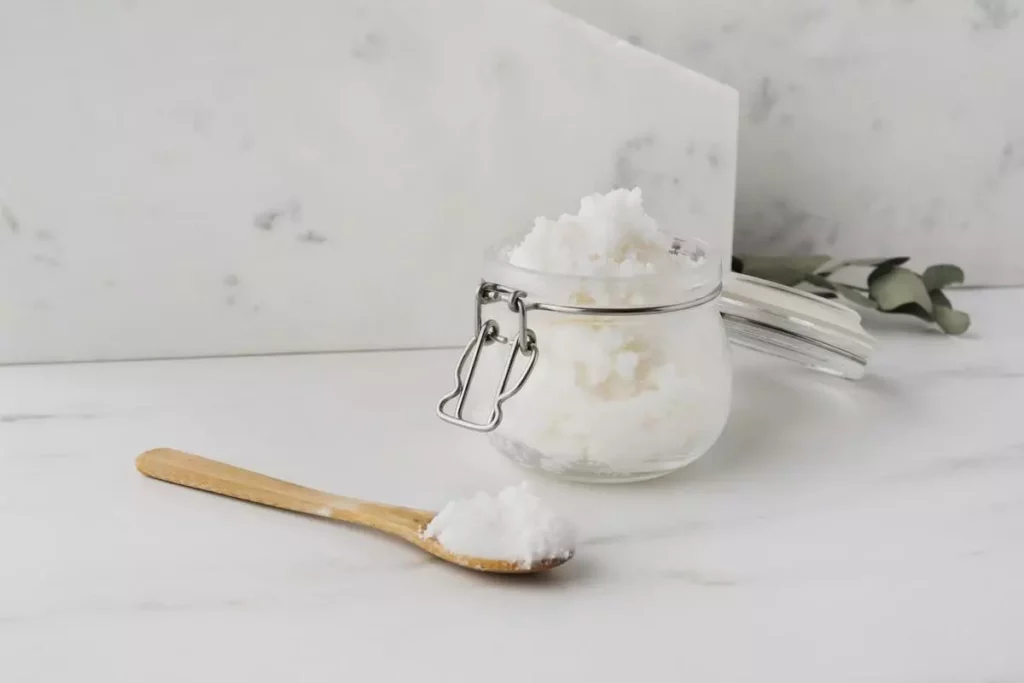You probably would have watched many skin care product commercials where they talk about shea butter. Have you wondered what it is, whether it’s an oil, a type of butter or a formulation? In this blog, we will delve into detail about shea butter, its beneficial effects on the skin and hair. We will also look into a few homemade recipes you can use to prepare natural skin care and hair care products at home.
What is Shea Butter?
Shea butter is a nut extract. Biochemically speaking, it’s a type of fat that’s obtained from the nuts of the West African Shea tree. This ivory-coloured extract remains solid even at warm temperatures. It contains stearic fatty acid, oleic fatty acid, linolenic fatty acid, arachidic fatty acid, and palmitic fatty acid. It’s also rich in vitamins.
Shea butter melts when applied on the skin. Plus, it’s easily absorbed by the skin. That’s why it’s used in many skin care cosmetics for nourishing and moisturising the skin.
Properties of Shea Butter
- The fatty acids present in shea butter act as ‘refatting’ agents to restore oil balance in the skin
- It creates a protective layer to prevent drying of the skin
- Oleic acid and linolenic acid are at balanced levels in this extract. So, they moisturise the skin without making it look and feel oily
- Triterpenes present in Shea butter improve collagen production to reduce wrinkles and fine lines and enhance skin elasticity
- The antioxidant content and moisturising properties of shea butter stimulate generation of new and healthy skin cells
- Anti-inflammatory properties of shea butter help in healing superficial burns, skin redness and rashes
Is pure shea butter good for skin?
One of the major reasons shea butter is used in many cosmetics is because it’s compatible with all skin types. Very few allergies are associated with this nut extract. Yes, you can directly apply shea butter on your skin for deep conditioning and moisturising. However, it’s always best to do a patch test before using this butter on your skin.
Does shea butter lighten skin complexion?
Shea butter is rich in vitamin E that’s known to have skin tone lightening effects. This vitamin restores and rejuvenates skin cells to make the skin healthy and radiant. However, for best results, you need to use herbs or essential oils with shea butter.
What are the benefits of shea butter for face?
You can find visible changes in your skin tone and skin health by regularly applying shea butter. Its benefits are:
- Soothes skin irritation
- Heals acne scars
- Speeds up skin healing
- Moisturises the skin
- Reduces acne formation as it moisturises without clogging the pores in the skin
- Provides an additional layer of sun protection as it has an SPF of 3 to 4
- Helps manage eczema, psoriasis and other skin conditions
- Reduces effects of scarring
- Has anti-aging properties
What are the benefits of shea butter for oily skin?
The difficultly with oily skin is that using any kind of moisturiser tends to make it look even oilier. However, with shea butter, you will not have this problem. It dissolves the stale oil in the pores for deep cleansing. At the same time, shea butter rapidly dissolves on the skin and penetrates into the skin to moisturise it from inside. Shea butter also prevents breakouts of acnes and blackheads, a common problem with oily skin. It controls sebum production to balance oil levels on the skin.
What are the benefits of shea butter for hair?
- Improves your hair health and shine
- Repairs hair damage caused due to hair styling, straightening, perming and curling
- Protects hair from the harmful ultraviolet radiations
- Protects hair from the harmful effects of chlorine and other chemicals used for water purification
- Reduces hair loss by nourishing your hair from the roots
- Soothes dry and itchy scalp caused due to dandruff and psoriasis
- Regenerates hair to reduce tail end splits
- Acts as a natural hair conditioner without clogging the pores
- Reduces hair frizz
What are the benefits of shea butter soap?
Soaps made of shea butter are natural and eco-friendly. Shea butter is extracted from nuts and has few proteins that could trigger allergies. Therefore, natural soaps made of shea butter are safe for use on all skin types. Secondly, shea butter doesn’t clog pores and is quickly absorbed into the skin for deeper conditioning. Cinnamic acid present in shea butter provides natural protection from UV rays. It’s also rich in vitamins and fatty acids that nourish your skin from inside. These nutrients help in cell regeneration to make the skin soft and supple.
Are there any negative or side effects to shea butter?
There are not many side effects of using shea butter. However, those who have nut allergies should be careful while using this plant extract.


